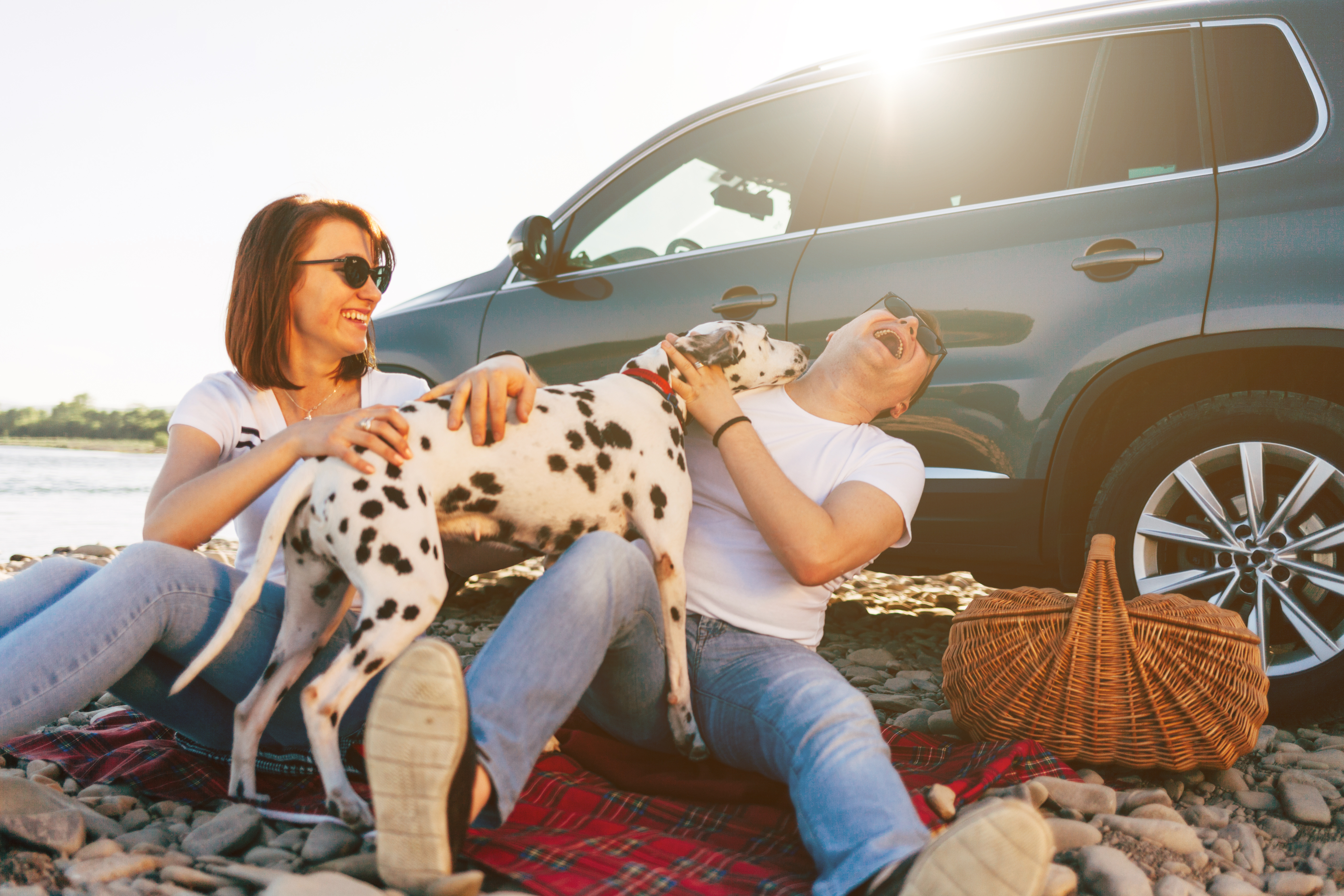Can Dogs Eat Turkey
Whether you’re getting ready to celebrate thanksgiving, going to a medieval festival with turkey legs, or simply love the taste, turkey is a classic food that most people love. In addition to most people, turkey is also very appealing to animals, namely dogs. If you’re lucky enough to share your home with a pet canine, you’re probably wondering if you can also share your turkey with them.
If you want to give your dog a treat in the form of turkey, you can go ahead and do that. Turkey isn’t toxic in any way to dogs and they’re sure to devour it if given the chance. Turkey is actually quite healthy for dogs. It’s very lean meat that’s low on fat, but high in protein and other necessary nutrients. As such, turkey is often used as an ingredient in many different types of dog foods.
- Is Turkey Toxic for Dogs?
- Are Certain Ingredients in Turkey Bad for Dogs?
- What’s the Safest Way to Give Turkey to My Dog?
- Can Dogs Eat Turkey Bones?
- Final Thoughts About Dogs and Turkey Meat


Is Turkey Toxic for Dogs?
In short, turkey is not toxic for dogs and makes for a very safe and delicious treat. In fact, because of how lean and healthy turkey is, it’s often used as an active ingredient in many different kinds of dog food. Turkey is very high in riboflavin, protein, and phosphorus which are all important to the health of your dog. It also contains zinc, B vitamins, and selenium.
A single serving of turkey contains less than 150 calories and is very low in fat content. It also doesn’t contain any carbs, sugar, or fiber, which means your dog isn’t going to be gaining a ton of weight or putting on fat when you feed them turkey. Additionally, a single serving of turkey contains up to 25 grams of protein, making it one of the leanest and most nutritious things you can give your pooch.
While turkey is usually a safe and healthy treat, it’s still best to monitor your dog while you’re feeding it to them. You also don’t want to let them eat unlimited quantities of turkey, as the meat is good enough that they won’t stop when they should.
Are Certain Ingredients in Turkey Bad for Dogs?
As long as you use raw, cooked turkey, your dog has nothing to worry about. It’s the additional ingredients that often get thrown into a thanksgiving turkey meal that make turkey unhealthy and even dangerous for dogs. Here are some of the things you want to leave out of your next cooked turkey if you plan to share with your dog.
- Garlic
- Onions
- Salt
- Butter
- Sage
- Nutmeg
- Cocoa Powder
- Lard
- Any other fatty, salty, or sweet additives
While these are the foods and spices that aren’t safe for dogs during thanksgiving, here are a few of the things they can eat with their turkey.
- Pumpkin
- Green beans
- Squash
- Sweet potatoes
- Corn
- Carrots

What’s the Safest Way to Give Turkey to My Dog?
If you want to feed turkey to your dog in the safest way possible, here’s the process you should follow.
First off, never let your dog help themselves to unlimited turkey and always keep an eye on them while they’re enjoying it.
- Cut the skin off your turkey. Turkey skin isn’t toxic for dogs, but it’s covered in fat, slime, and other fatty and unhealthy things. It won’t benefit your dog in any way, and they’ll love the turkey just the same.
- Make sure that the turkey you’re giving to your dog is plain and cooked. Avoid giving them turkey that has lots of seasonings or spices and turkey that’s mixed with certain foods and vegetables such as onions.
- Start with small quantities of turkey that you take off the bone and handpick yourself. Turkey is best when used as a treat rather than as an entire meal for your pampered pooch.
- Take extra care to ensure there aren’t any bones in your turkey meat. Turkeys have many large and small bones throughout their bodies and if it’s small enough, a bone can accidentally get lodged in your dogs throat causing them to choke.
- You should never give your dog turkey that’s fried or that’s overly fatty, as excessive fat can lead to pancreatitis. This is also the main reason for disposing of the skin on turkey rather than letting your dog eat it.
As long as you follow these simple rules and tips, your dog should have no problem downing some turkey.
Can Dogs Eat Turkey Bones?
While a majority of turkey meat comes from the main torso after deboning, turkey legs are one of the most iconic parts of the turkey. Turkey legs are often served at medieval festivals or restaurants and are one of the tastiest and messiest ways to enjoy turkey meat.
When it comes to giving turkey legs and bones to dogs, however, that’s a whole other story. Smaller bones found within turkeys are dangerous to both humans and animals because they can get lodged inside the throat and cause choking. Even if your dog can swallow them, turkey bones can wreak havoc on the digestive tract. It will almost certainly cause indigestion and could lead to more serious problems that require a vet visit.
In regards to larger bones, such as the ones on turkey legs, those are ok for dogs. Bones in general are packed with protein and other necessary nutrients that dogs love and need. However, you should keep a close eye on your dog and make sure they don’t break the bone down into smaller chunks. These chunks can cause the same issues that small turkey bones do.

Final Thoughts About Dogs and Turkey Meat
In general, turkey is a safe and delicious treat for dogs. It’s an ingredient in many commercial dog foods as either a filler or the main ingredient. As long as you keep a close eye on your dog while they’re eating turkey and make sure to prepare it properly, your dog is sure to love turkey meat!





